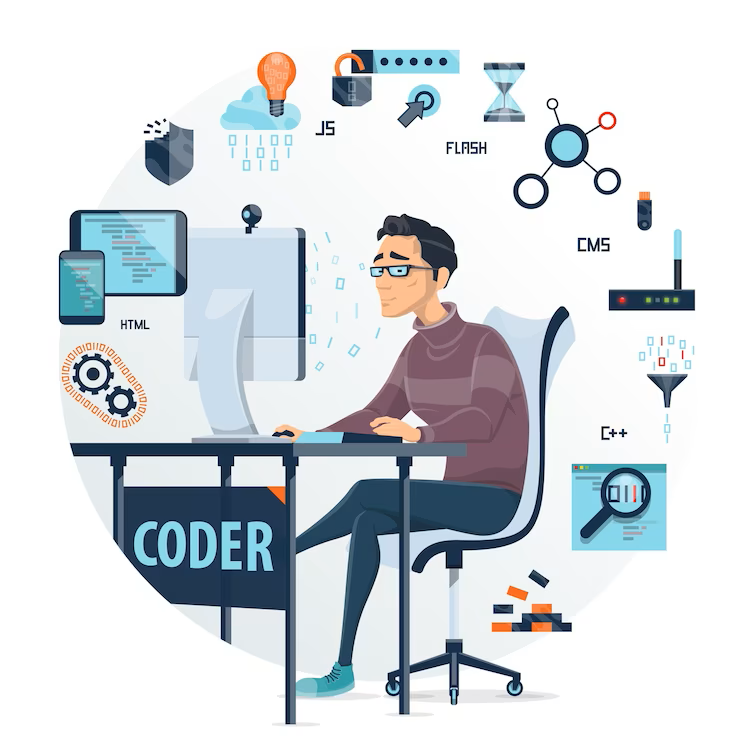Discover ten practical tips for learning coding faster and more efficiently. Start with the basics, practice regularly, collaborate with others, work on real-world projects, and more.
Are you struggling to learn coding? Don’t worry, you’re not alone. Many beginners find it difficult to pick up coding and feel overwhelmed with the amount of information out there. However, with the right approach, anyone can learn to code faster and more efficiently. In this post, we will share ten practical tips that will help you master coding in no time.
Start with the Basics
Before diving into complex coding concepts, make sure you have a solid foundation of basic coding skills. Learn the syntax, data types, and control structures of your chosen language before moving on to more advanced topics.
One of the best ways to learn the basics is to use an online course. There are many free and paid courses available that can help you get started. Some popular platforms for online learning are Codecademy, Udemy, and Coursera.
Practice Regularly
Consistency is key when it comes to learning coding. Practice coding every day, even if it’s just for a few minutes. This will help you develop a habit and improve your skills faster.
Set aside a specific time each day for coding practice. Make sure you have a distraction-free environment, and focus on one task at a time. You can start with simple exercises and gradually move on to more complex problems.
Break Down Complex Problems
If you’re facing a complex coding problem, don’t get overwhelmed. Break it down into smaller, more manageable parts. This will make it easier for you to tackle each part and eventually solve the larger problem.
Start by identifying the main objective of the problem. Then, break it down into smaller tasks that you can work on individually. Once you’ve solved all the smaller tasks, you can combine them to solve the larger problem.
Collaborate with Others
Learning to code with others can be incredibly helpful. Join coding communities, forums, or find a coding buddy to help you through difficult concepts and provide support.
Collaborating with others can also help you discover new coding techniques and approaches. It’s a great way to get feedback on your code and learn from others’ mistakes.
Work on Real-World Projects
Learning to code in a real-world setting can be very different from studying theory. Try working on small projects that solve real-world problems. This will help you apply your knowledge and prepare you for a career in coding.
Choose a project that you’re interested in and break it down into smaller parts. This will help you focus on one task at a time and complete the project more efficiently. There are many open-source projects available online that you can contribute to as well.
Stay Organized
Keep your code organized and well-structured. This will make it easier for you to debug and maintain your code over time.
Use comments to explain what each part of your code does. Keep your variables and functions well-named and organized. Follow standard coding conventions and formatting guidelines.
Use Online Resources
There are many free online resources available to help you learn to code faster. Websites like Codecademy, Udemy, and Coursera offer courses, tutorials, and exercises to help you master coding skills.
Use these resources to supplement your learning. They can help you understand complex concepts and provide you with additional practice exercises.
Take Breaks
Learning to code can be mentally exhausting. Take frequent breaks to rest and recharge. This will help you avoid burnout and stay motivated.
Take a short break every hour or two. Go for a walk, do some stretching exercises, or have a healthy snack. This will help you clear your mind and come back to coding with renewed energy.
Focus on One Language at a Time
Trying to learn multiple programming languages simultaneously can be overwhelming. Focus on one language at a time and become proficient in it before moving on to another language.

